2,932 people live there
The Falkland Islands has just completed its census for 2012 and reported back already. The islands' population is down 4% since 2006, although the government puts this entirely down to a fall in 477 contractors who were employed at the Mount Pleasant Airport which serves as the Islands' military base.
The vast majority of the Islands' population live in Port Stanley, the capital - with a falling number in the surrounding 'Camp' wilderness.
1,300 UK military personnel
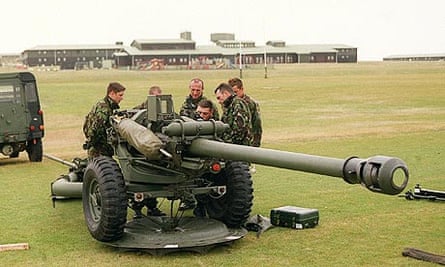
The UK still has a major military presence on the island. At last count it was:
• 1,300 Service personnel plus around 50 MOD civil servants.
• Four Typhoon fast-jet aircraft
• VC-10 tanker aircraft
• Hercules C-130 aircraft
• Rapier surface-to-air missiles
• Frigate or Destroyer (currently Type 23 frigate HMS Montrose to be replaced by Type
45 destroyer HMS Dauntless)
• Royal Fleet Auxiliary Gold Rover
• HMS Clyde permanently stationed in the region as Falklands Patrol
• Infantry company currently from 2 Scots
The cost has been rising, although the figures below do not reflect coming cuts in the MoD's spending.
59% say they are Falkland Islanders
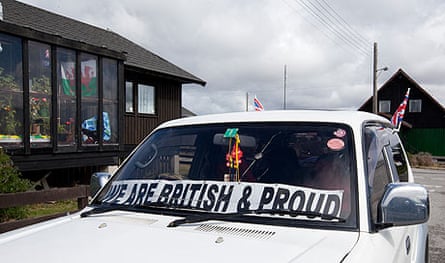
The majority of the population self-identify as either 'Falkland Islanders' or 'British', with a smaller number coming from either Chile or tiny St Helena. 2.17. There has been a decline in the proportion of the population from St. Helena (now 10.4% compared to 13.1% in 2006) and an increase in the Chilean population (now 6.4% compared to 5.4% in 2006).
Half a million sheep
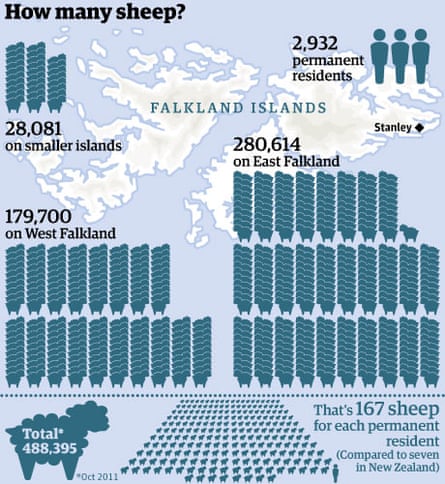
The agriculture of the island is still a major part of the economy and is dominated by sheep farming - surveyed every year by the government.
£46m a year
The Falklands is largely self-financing, apart from the costs of the military base, which are paid by the UK taxpayer. The Island spends around £46m a year, mostly on public works and infrastructure.
28% work for the government
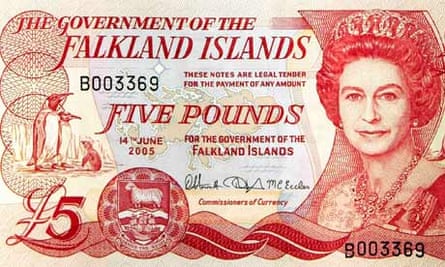
The largest employment sector on the Islands is the Falkland
Islands Government – accounting for 28% of all employment. Other significant employers in the Islands are agriculture (11%), hospitality and tourism (11%) and transport and communications (12%). Employment in the agricultural industry has continued to decline since 2006 with 189 employees in 2012 (down from 205 in 2006).
Pay is low by UK standards - the average income is £20,100, compared to £26,500 for UK full-time workers. It also varies, depending on where people live.
The census points out wide inequality of earnings too:
almost half of all residents (49.2%) report an annual income of less than £15,000 (with almost 12% reporting income of less than £5000). Most retirees report incomes of less than £15,000 per annum, however fully two thirds of all persons reporting incomes of less than £15,000 per annum also report that they are employed
Smokers and drinkers

Just over a quarter - 27.7% of the population (aged 15 and over) are smokers - compared to 20% in the UK. And it's much more prevalent among young people – almost half (46%) of people aged 15-25 are smokers; as are 31% of people aged 25-40. Three quarters of the population drink alcohol too - with 12.8% of men and 8% of women drinking over the recommended daily limits of 21 and 14 units respectively. Almost half of the over-drinkers were men aged between 40 and 55.
14% increase in the elderly population
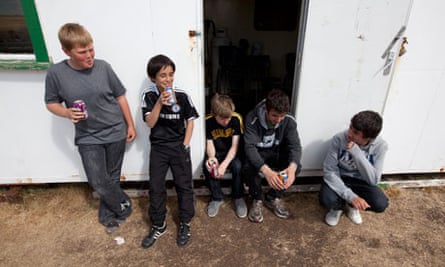
Children aged 0-15 numbered 465 or 16.5% of the overall population of the Islands – a similar number to that reported in the 2006 Census. Elderly people (defined to be those aged 65 and over) numbered 301 or 10.7% of the population.
46% of the population are married
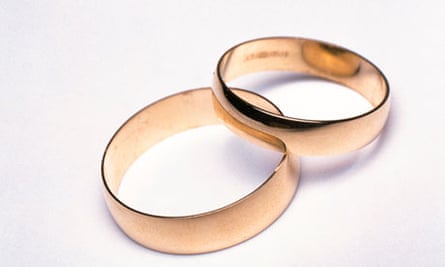
Those never married total 30% of the population (compared to 33% in 2006). Divorced people declined from 193 to 151 (6% of the population), while the married remained roughly the same at around 46%. The most noticeable change since 2006 is the increase in the number of people cohabiting – doubling since 2006 (2006 = 124; 2012 = 254). Cohabitation was much more prevalent amongst younger people, with almost twice as many people aged 16-30 cohabiting than were married.
Oil exploration could be worth £1.5bn
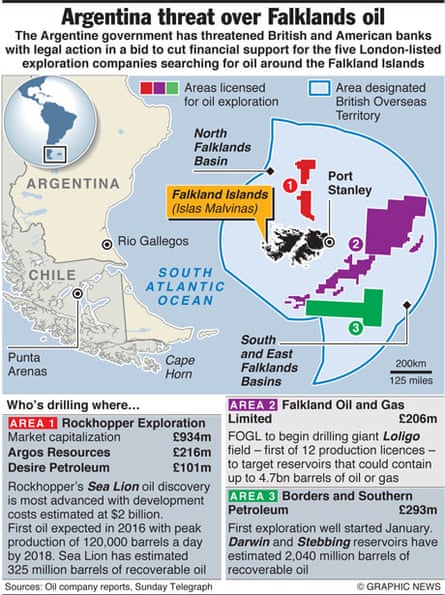
Download the data
DATA: download the full spreadsheet
NEW! Buy our book
Facts are Sacred: the power of data (on Kindle)
More open data
Data journalism and data visualisations from the Guardian
World government data
Search the world's government data with our gateway
Development and aid data
Search the world's global development data with our gateway
Can you do something with this data?
Flickr Please post your visualisations and mash-ups on our Flickr group
Contact us at data@guardian.co.uk
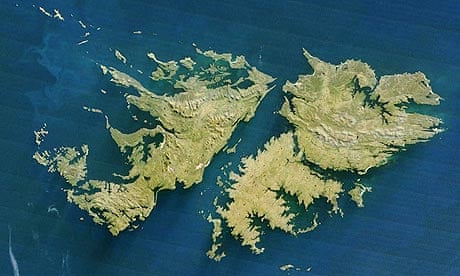









Comments (…)
Sign in or create your Guardian account to join the discussion